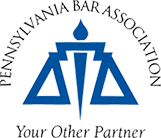Most people have seen funny videos of police conducting roadside field sobriety tests on individuals who are obviously drunk. Perhaps you have seen more than your fair share of these videos as well. You watch people fall over backwards when attempting to touch their fingers to their noses or trip over themselves as they attempt to walk a straight line.
Maybe you’ve even seen someone hopping on one foot as you pass by flashing lights on the side of the roadway. All of these images give the impression that you would only fail a field sobriety test if impaired. For this reason, you may find it difficult to believe that even sober people fail these tests. How can that be?
Let’s look at the Standardized Field Sobriety Tests
Some time ago, invented was a set of Standardized Field Sobriety Tests in order to test for driver impairment. The SFST is actually three separate tests:
- The one-leg stand test requires you to hop on one leg for about 30 seconds.
- The horizontal gaze nystagmus test checks for jerking movements in the eyes, which increase due to impairment.
- The walk-and-turn test requires you to walk heel-to-toe in one direction and then turn around and repeat in the opposite direction.
Of these three tests, the one-leg stand test has the worst track record of the three. Nearly 47 percent of test subjects who participated in this test failed it. With that failure rate, it may be more effective for an officer to flip a coin to determine whether you are drunk.
Subjectivity is the name of the game
You guessed it! These tests are highly subjective. When a police officer stops you and suspects you of driving drunk, he or she already has a bias against you. For this reason, when you perform field sobriety tests, the officer’s observations may lean toward failure.
In one test, police officers watched a video of an individual taking the SFST. Some officers thought the subject failed while others thought he or she passed. It was the same person in each video. This test illustrated just how subjective an officer’s viewpoint is when it comes to using these tests to establish probable cause for an arrest. In fact, no less than one third of sober people fail these tests.
Moreover, the creation of the SFST used research under ideal conditions. You won’t be taking these tests under ideal conditions. More than likely, it will be dark, on the side of the road and with headlights and the patrol car’s lights flashing in your eyes. Traffic may make it difficult to hear the officer’s instructions, and the roadway may be uneven. Now, it’s easier to see why even sober people fail these tests.
What should you do?
If you find yourself facing the decision regarding whether to participate in the SFST — don’t do it. The law may obligate you to submit to a breath test, but it does not require you to participate in field sobriety tests. You may have thought that no harm could come from doing the tests if you are sober before reading this article, but now you know better.
You may still end up under arrest on suspicion of DUI, but at least the officer won’t have your alleged failure of the SFST to substantiate it. Other challenges to the charges may be possible as well, so it would be in your best interests to make use of the legal resources available to you as soon as possible after an arrest.



